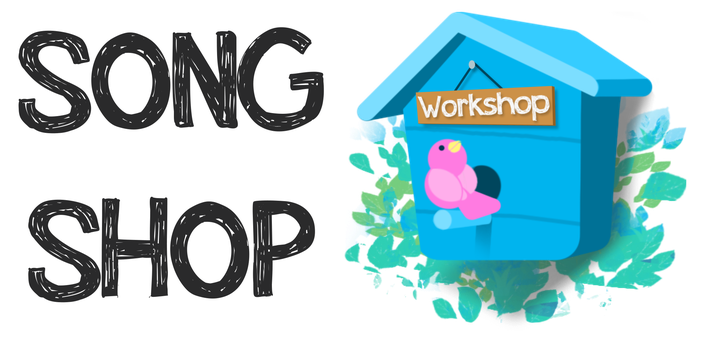
Songwriting Workshop Music Theory Basics
Learn the basics of songwriting by building an understanding of chords and music theory!
Watch Promo
6 Weeks of Lessons:
There are two types of lessons in this mini-course:
• 6 main video lessons, between 30-40 minutes each
• 7 RECORDED Q&A sessions, about 45 minutes each (these were recorded live)
That means there are 13 videos in this course, totalling 8+ hours of content.
You'll have access to these lessons forever. The videos are recorded and will be available for you to watch and download at any time.
Along with the lessons, you'll also be able to see and listen to what other course participants have written. This helps to provide further insight and inspiration on your own journey.
Why bother with songwriting? I'm not a songwriter!
You don't have to be a songwriter to participate in this course. In fact, I expect most of you to be non-songwriters. It's fun and rewarding to create your own music, but the real reason we're songwriting is to understand music theory.
Who Is This Course is For?
This course will be suitable to people at virtually all levels of piano. This is because we're not studying one piece in particular - rather, we'll be picking at a lot of pieces and doing a ton of writing. Instead of one piece to win them all (such as we did with the " 6 week mini-course"), we're aiming to master an understanding.
The beauty of using songwriting as a learning tool is that the end result will be a handful of music you wrote yourself, not just a pile of finished theory worksheets (though there will be those too).
I recommend that you have a year or two of piano under your belt before joining this course. You need to be comfortable reading notes all across the staff (though you don't need to be lightning-fast at it), have a decent understanding of rhythm, and a little bit of chord know-how will help (though it's not absolutely necessary).
What you'll be able to do at the end of this course:
• Write a simple melody
• Choose chords to go along with that simple melody
• Come up with a "musical fragment" that you can then turn into a longer composition
• Write a 16-bar piece of music in binary form, with a modulation, fleshed-out melody and chords/harmony. (If that doesn't make sense, it soon will!)
• Write in a specific dance style (minuet, courante, etc.)
•
Understand and identify I and V chords, predominants ii and IV, and the
vi chord - not only will you be able to find these chords in your
pieces, but you'll be able to write music with them too
• Write a pop song in simple verse/chorus form
• Show off to all your friends (wait, what?)
Basically, you'll be sharply boosting your knowledge of chords. Dance pieces in Binary form will make more sense to you, which will boost your enjoyment of learning and playing these pieces.
Your Instructor

Allysia has been teaching piano to people of all ages and levels, from three-year old beginners, to youth and teenagers, to retired adults, since 2005. Her website PianoTV.net and YouTube channel is the product of her desire to branch out and share music in new ways, and to provide a coherent framework for beginners.
She’s been playing piano since she was little, first taking lessons with her mother, and later with several trained piano teachers. Her musical education had a very creative focus, with lots of arranging and ear training.
As a teenager she decided to develop her songwriting skills by joining a loud rock band, which was a blast and is something she’s been doing ever since.
In 2005, she went through training to become a piano teacher at Long and McQuade in her Saskatchewan hometown, where she often taught fifty students each week, putting them through exams, competitions and recitals on a regular basis.
She also taught piano independently in Toronto, where she learned the ropes of being self-employed, which evolved into having her own bustling home studio in Saskatchewan. In addition to teaching, making videos and courses, she’s also adjudicated a couple music festivals, something she hopes to keep doing in the future.
For more information, please visit her at her website www.pianotv.net.
Frequently Asked Questions
Are you ready to join the Songwriting Workshop: Basics group and
have more fun with music theory than you ever thought possible?
